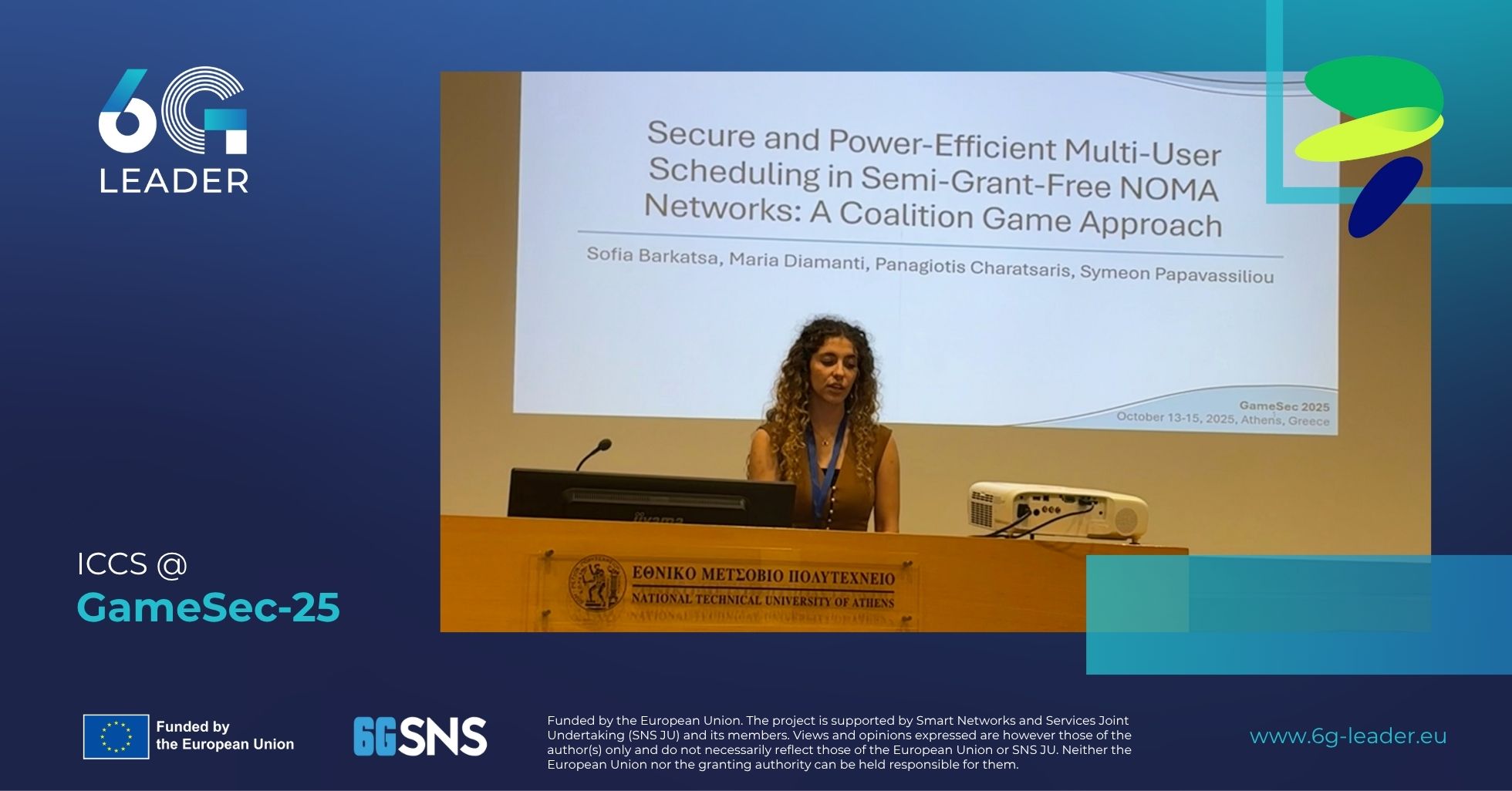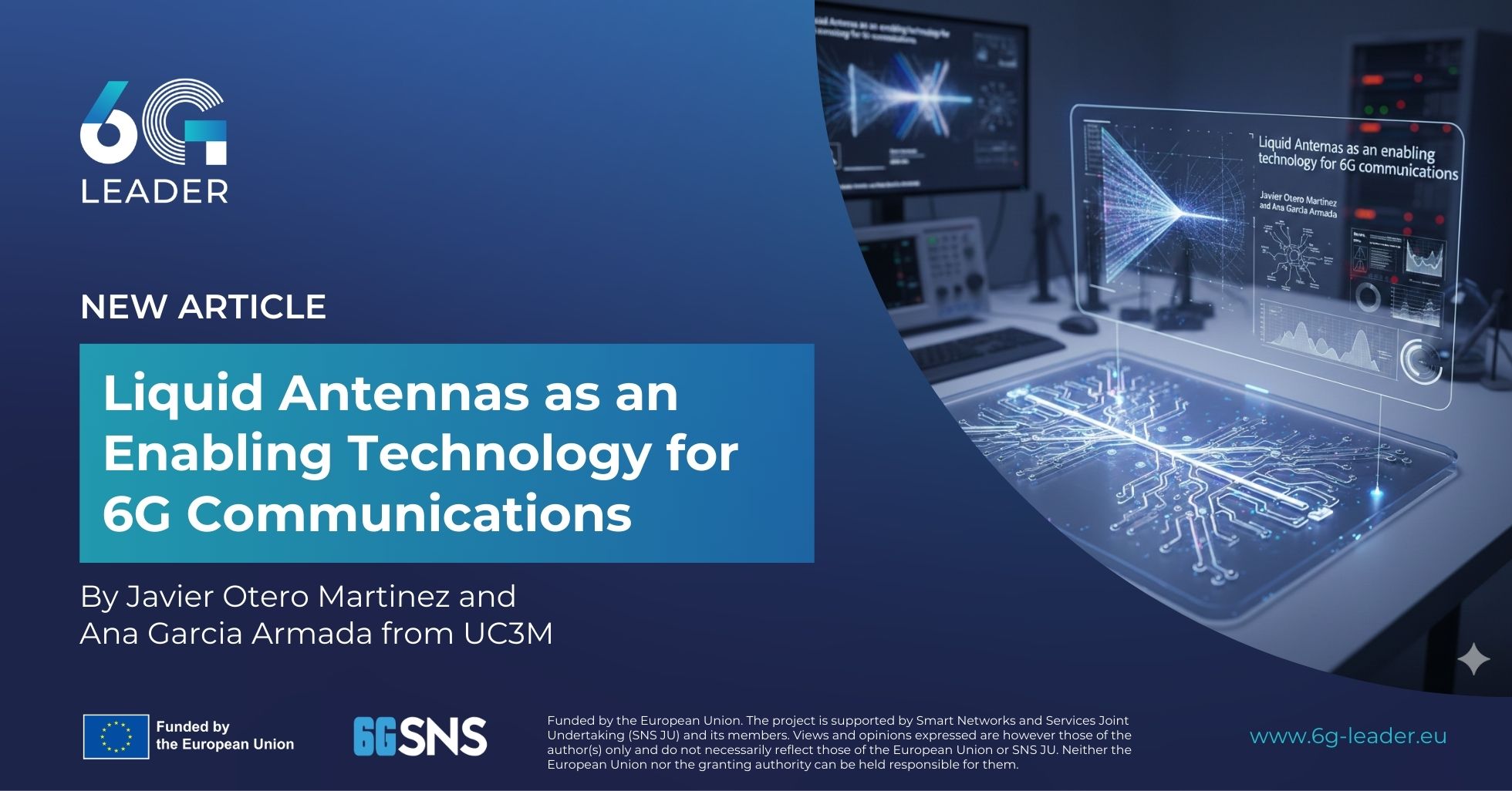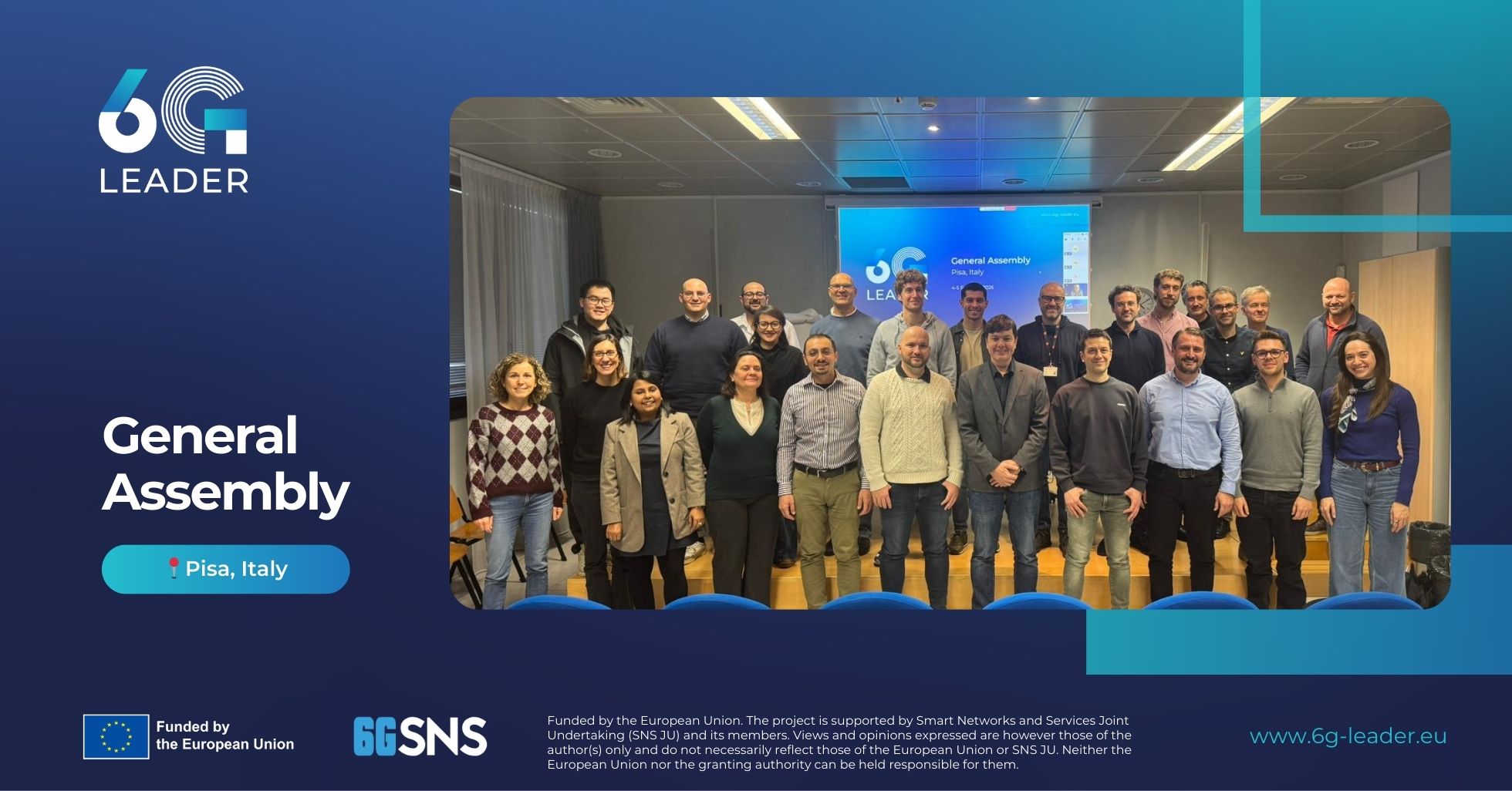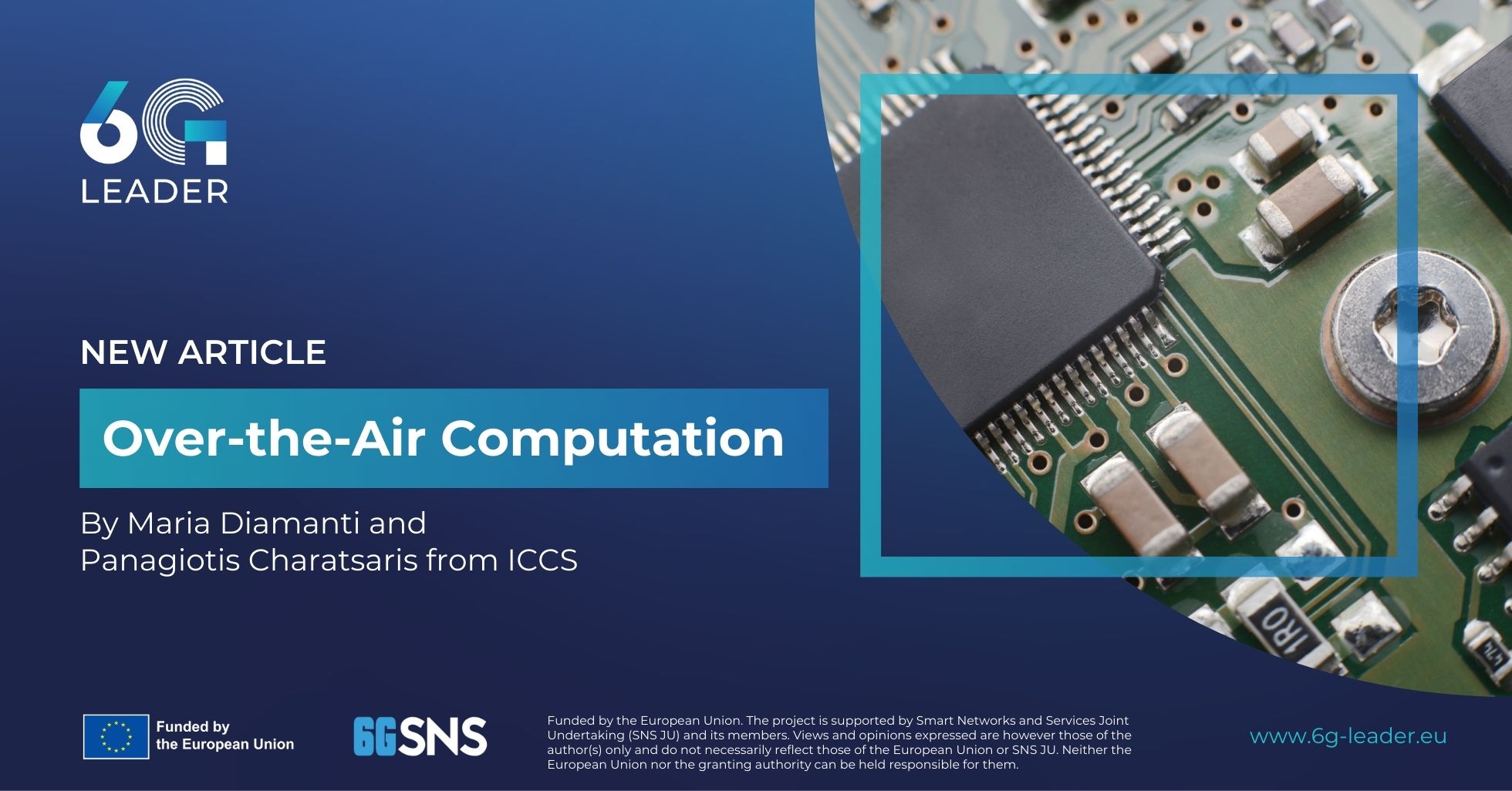ICCS, a key partner in the 6G-LEADER project, demonstrated its commitment to advancing secure and efficient 6G technologies by participating in the 16th Conference on Game Theory and AI for Security (GameSec-25). The conference, which focuses on leveraging strategic decision-making and computational intelligence for security challenges, took place in Athens, Greece, from October 13-15.
Sofia Barkatsa, from the National Technical University of Athens (NTUA), presented the ICCS-led work, showcasing a novel approach to resource scheduling that significantly enhances both security and power efficiency in future wireless networks.
The presented paper, titled “Secure and Power-Efficient Multi-User Scheduling in Semi-Grant-Free NOMA Networks: A Coalition Game Approach,” introduces a sophisticated scheduling framework designed for Semi-Grant-Free (SGF) Non-Orthogonal Multiple Access (NOMA) networks. NOMA is a crucial technology for 6G, enabling massive connectivity and higher spectral efficiency.
The authors – Sofia Barkatsa, Maria Diamanti, Panagiotis Charatsaris, and Symeon Papavassiliou – tackled the complex problem of managing access for numerous users while simultaneously maintaining strict physical layer security and meeting Quality-of-Service (QoS) requirements.
The research is highly relevant to the goals of 6G-LEADER, which seeks to develop AI/ML-driven, sustainable, and energy-efficient 6G wireless communication systems. The key innovations presented include:
- Hybrid Access Scheme: The work utilizes SGF NOMA, a hybrid approach combining traditional Grant-Based (GB) access with contention-based Grant-Free (GF) access. This integration aims to enhance network capacity while drastically reducing control signaling overhead and service latency—critical metrics for next-generation networks.
- Dual Scheduling Algorithms: To optimize the system, two distinct scheduling algorithms were designed:
- Greedy Algorithm: A low-complexity, one-shot algorithm that quickly prioritizes GF user access based on backoff times.
- Coalition Game-Based Algorithm: An innovative, iterative approach that refines scheduling decisions. In this model, GF users act as independent “players” who strategically form coalitions to minimize their individual transmission power, leading to superior overall energy efficiency.
- Superior Trade-off: The proposed framework was shown to achieve a superior trade-off between maximizing the number of admitted GF users and minimizing power consumption, all while rigorously satisfying the security and service requirements of every user. This result significantly outperforms conventional scheduling strategies.
Connecting Game Theory and AI to 6G Security
GameSec-25 served as an ideal platform to present this work. The conference specifically focuses on how game theory, AI, and related methodologies can be applied to address security, privacy, and trust challenges in complex, dynamic systems.
The ICCS team’s application of a coalition game directly aligns with the conference theme, demonstrating how strategic decision-making and adversarial reasoning (inherent in game theory) can be leveraged to design resilient and trustworthy network architectures for the 6G era. By integrating these advanced concepts, the 6G-LEADER project continues to drive the development of highly intelligent, secure, and sustainable future networks.







